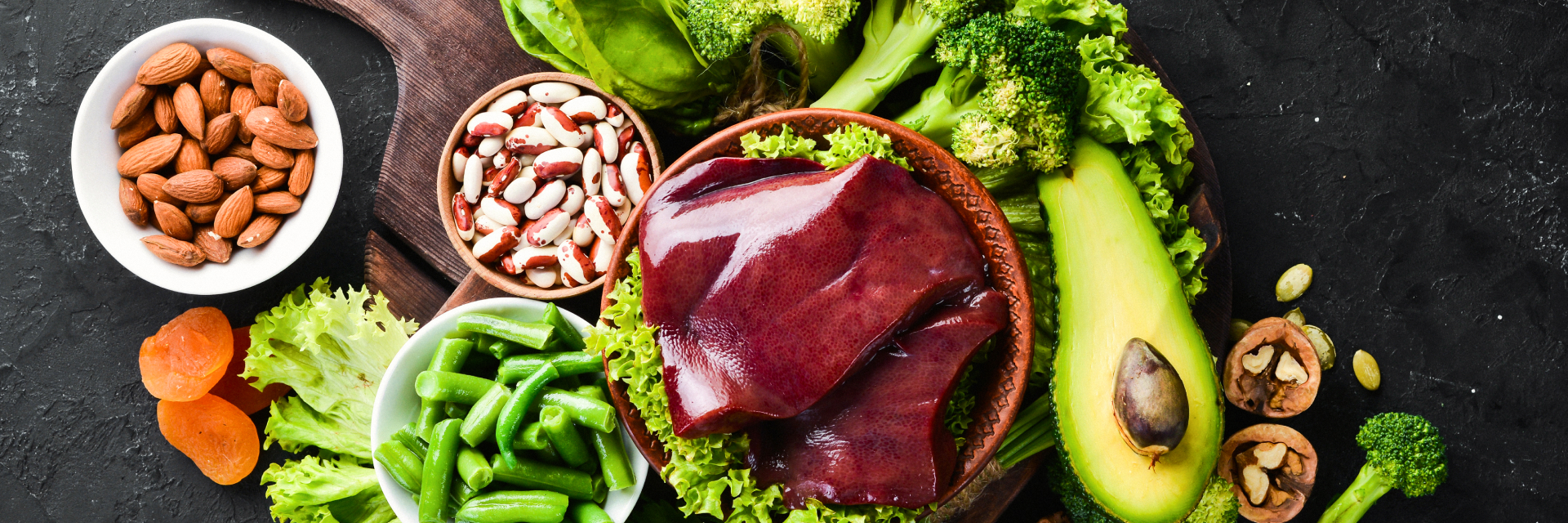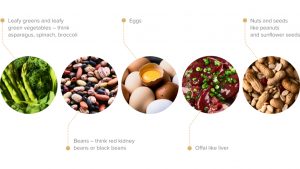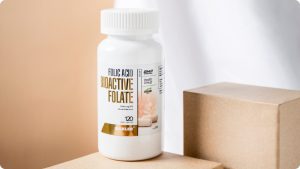Are you getting enough folic acid? What’s the difference between folate and folic acid? If you’ve been wondering what folic acid is and where to get it, we got you. In this post, we’ll cover the basics of this vitamin and explore its importance for our health. We’ll touch on where you can get this vitamin from and things to keep in mind when using it.
What Is Folate?
Folate is a name for one of the water-soluble vitamins the body needs, vitamin B9. Its name originates from the Latin word folium, meaning leaf, as leafy greens contain plenty of it. We can’t make this nutrient ourselves, so we need to get it from foods in sufficient quantities.
In our bodies, folate gets converted into a different form, which then participates in the folate cycle. It plays a role in many processes, like making DNA bases called nucleotides, so it’s critical for DNA synthesis. It also plays a role in metabolism and the production of antioxidants.
Why is folic acid important?
Folic acid is one of the most essential vitamins for women who are trying to start a family. There are many benefits of folic acid for those in the planning stages or who are already pregnant. Sufficient intake helps with the proper development of the nervous system in the baby. An embryo has to develop a healthy neural tube, which will act as the precursor of the nervous system. That way, the parents can avoid a range of conditions in the baby called neural tube defects.
In addition, it may support those struggling with fertility. It can improve egg quality and help with implantation. For those who want to conceive, getting sufficient amounts is imperative.
However, that’s not to say this vitamin isn’t essential for everyone else.
It’s a key player in heart health.
Homocysteine is a sulfur-containing amino acid which we produce from the amino acid methionine. High levels of this amino acid play a role in multiple health concerns, especially age-related ones. However, with sufficient vitamin B6, folate and vitamin B12 intake, we can lower the levels of this amino acid. This supports cardiovascular health.
Anemia is another concern where folate shines. Getting sufficient micronutrients like iron, vitamin B12, and folate is critical for our ability to make red blood cells. It appears that foods with supplemental folate are an excellent way to increase hemoglobin concentrations.
It can also benefit brain health. Consuming enough folate from foods may protect against neurodegenerative diseases like Alzheimer’s. Folate may also support mood. It plays an important role in the nervous system. It appears that sufficient folate intake can benefit those who experience low moods.
What foods contain folic acid?
Foods tend to contain folate, while supplements will contain folic acid, a stable vitamin form. The body better absorbs folic acid as it comes in a form we can better process.
Luckily, the bioavailability of this nutrient from food is high, at about 80% when compared to folic acid supplements. Therefore, if you want to increase your intake, foods are a great way to do so.
So, which foods have folate? These include:
Many of these are very easy to incorporate into meals you probably already eat. If you would like some inspiration, check out our easy, veggie-rich recipes!
How can I get enough folic acid?
You might be wondering whether you’re meeting your requirements for folic acid. Certain groups are likelier to not get sufficient folate. These include people who:
- Consume a lot of alcohol
- Do not consume enough vegetables or don’t have a varied diet
- Those who are pregnant
- Have certain conditions
On the other hand, those who consume vegetarian diets tend to get sufficient folic acid. However, they may not get enough vitamin B6 and B12.
Folic acid is a water-soluble vitamin, so you should aim to get sufficient amounts of it every day.
There are two main ways to get folic acid: foods containing folic acid and folic acid supplements. Incorporate folate-rich foods into your meals if you’re going the food route. Check whether you are eating foods fortified with folic acid, as that can be an easy way to increase intake.
If you need more folic acid than you can get from foods, supplements of folic acid can be a good idea. To choose your folic acid supplement, consider the following:
- What form of folic acid does the supplement contain? Most supplements will contain folic acid, as it’s very stable. However, some supplements may have more bioavailable forms. Maxler Folic Acid Bioactive Folate contains the natural form of vitamin B9. That is the 5-MTHF form to which our body converts folate and folic acid.
- Can you trust the quality of the supplement? Choose manufacturers with additional quality standards. Maxler supplements are produced in IFS and GMP-certified factories from high-quality raw materials.
- Do you need folic acid on its own or with other vitamins? A multivitamin might be a better option if you’re trying to increase your general vitamin intake.
Getting enough vitamins and minerals is important for optimal health, and folic acid is no exception. Use your country’s dietary recommendations to best understand how much folic acid you should consume. For example, in the US, it’s recommended that adults get around 400 mcg of the nutrient daily. For pregnant women, the dose is higher, at 600 mcg.
If you’re unsure whether you’re meeting the requirements, the best way to find out is through a test. Contact your physician and inquire about measuring your levels of folate.
Can I get too much folic acid?
If you’re relying on foods to meet your folic acid requirements, chances are that you won’t get too much. However, it’s essential to keep in mind that there is a tolerable upper intake level. The maximum daily dosage is 1,000 mcg/day.
The dosage came about from noticing that people with a deficiency in another vitamin, B12, can develop a type of anemia. It can lead to nervous system damage if untreated for a long time. Back in the day, people were advised to get lots of folic acid to correct it, up to 5,000 mcg per day. This led to anemia symptoms lowering, but nervous system damage remaining. Therefore, the upper limit was established to prevent this.
For those who want to make sure they’re getting enough vitamin B12, a test from your practitioner can help check your levels.
Overall, folic acid is a vital vitamin the body needs. It’s key for some critical processes, like making our DNA. Most of us can meet our requirements through the diet. However, there are times when you might need extra support from a folic acid supp. If you’re looking to understand whether you need it, a test from your practitioner can help you make the right decision. By including foods rich in folate, you can help yourself feel your best.








